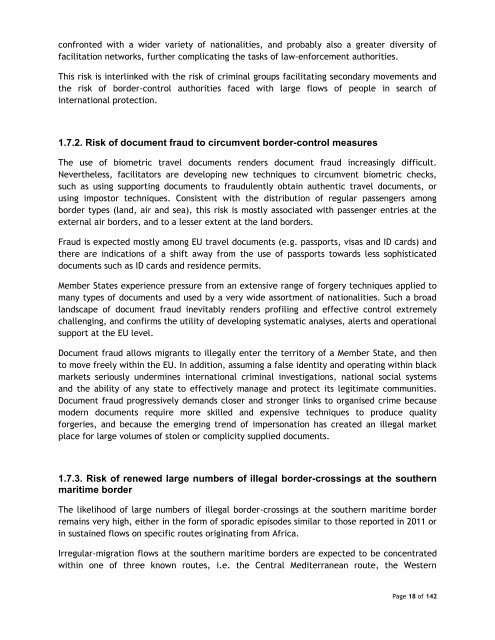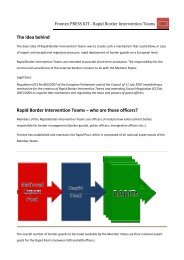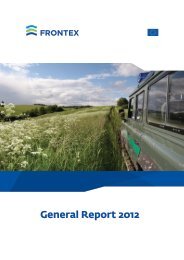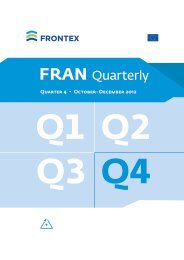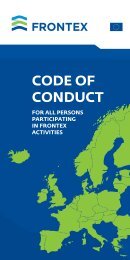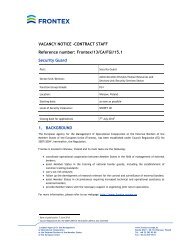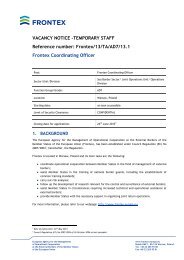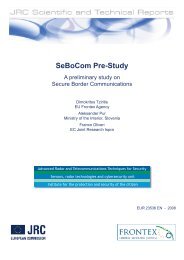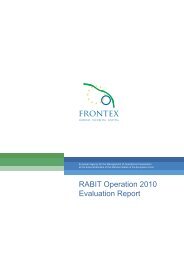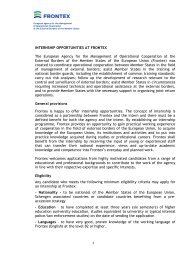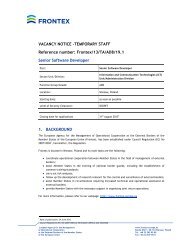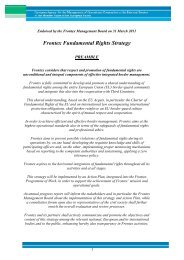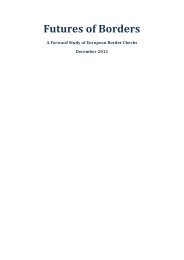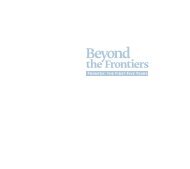Download PDF - Frontex
Download PDF - Frontex
Download PDF - Frontex
You also want an ePaper? Increase the reach of your titles
YUMPU automatically turns print PDFs into web optimized ePapers that Google loves.
confronted with a wider variety of nationalities, and probably also a greater diversity of<br />
facilitation networks, further complicating the tasks of law-enforcement authorities.<br />
This risk is interlinked with the risk of criminal groups facilitating secondary movements and<br />
the risk of border-control authorities faced with large flows of people in search of<br />
international protection.<br />
1.7.2. Risk of document fraud to circumvent border-control measures<br />
The use of biometric travel documents renders document fraud increasingly difficult.<br />
Nevertheless, facilitators are developing new techniques to circumvent biometric checks,<br />
such as using supporting documents to fraudulently obtain authentic travel documents, or<br />
using impostor techniques. Consistent with the distribution of regular passengers among<br />
border types (land, air and sea), this risk is mostly associated with passenger entries at the<br />
external air borders, and to a lesser extent at the land borders.<br />
Fraud is expected mostly among EU travel documents (e.g. passports, visas and ID cards) and<br />
there are indications of a shift away from the use of passports towards less sophisticated<br />
documents such as ID cards and residence permits.<br />
Member States experience pressure from an extensive range of forgery techniques applied to<br />
many types of documents and used by a very wide assortment of nationalities. Such a broad<br />
landscape of document fraud inevitably renders profiling and effective control extremely<br />
challenging, and confirms the utility of developing systematic analyses, alerts and operational<br />
support at the EU level.<br />
Document fraud allows migrants to illegally enter the territory of a Member State, and then<br />
to move freely within the EU. In addition, assuming a false identity and operating within black<br />
markets seriously undermines international criminal investigations, national social systems<br />
and the ability of any state to effectively manage and protect its legitimate communities.<br />
Document fraud progressively demands closer and stronger links to organised crime because<br />
modern documents require more skilled and expensive techniques to produce quality<br />
forgeries, and because the emerging trend of impersonation has created an illegal market<br />
place for large volumes of stolen or complicity supplied documents.<br />
1.7.3. Risk of renewed large numbers of illegal border-crossings at the southern<br />
maritime border<br />
The likelihood of large numbers of illegal border-crossings at the southern maritime border<br />
remains very high, either in the form of sporadic episodes similar to those reported in 2011 or<br />
in sustained flows on specific routes originating from Africa.<br />
Irregular-migration flows at the southern maritime borders are expected to be concentrated<br />
within one of three known routes, i.e. the Central Mediterranean route, the Western<br />
Page 18 of 142


